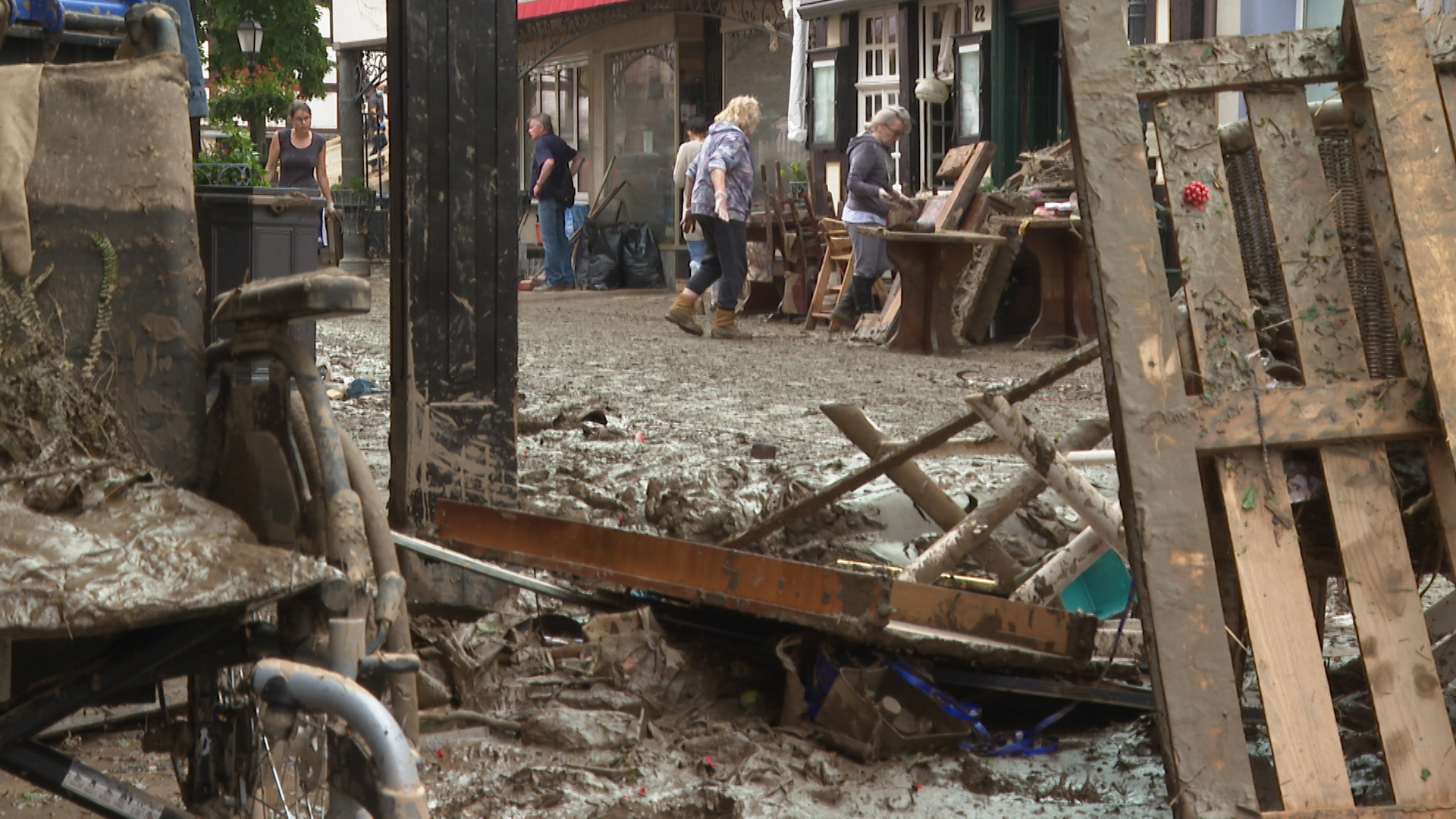03:23

It has been a month since catastrophic floods killed 187 people and reduced some towns in western Germany to rubble. Rescue brigades have left and construction crews have moved in, as residents prepare for years of rebuilding.
Local politicians say the cost of the damages is more than $30 billion. On Tuesday, Chancellor Angela Merkel announced a similarly-sized recovery fund after a meeting with Germany's 16 state leaders.
READ MORE
The 294 COVID-19 vaccines being developed
The IPCC's climate report: The key points
A new temperature record for Europe?
The announcement of federal relief funding is welcome news for many people who say the recovery has already been extremely challenging.
Thousands of homes and businesses are still without electricity and running water. Local services like childcare are severely affected. Many are still relying on the German Red Cross for hot meals. The charity says volunteers are serving more than 10,000 meals every day.
Starting over from scratch
In Ahrweiler, Zouheir Tak is one of thousands who lost everything. In a matter of minutes his ground-floor cafe filled with meters-high water from the nearby Ahr river.
"I built this business up by myself over many years and everything was gone in one single day," he told CGTN Europe.
He is doing what he can to begin to build back his livelihood. He spends eight hours a day clearing out moist wood and mold-covered tiles. The damage is likely to set him back $100,000 and repair work will take over a year, he said.

Rubble fills Ahrweiler's main street. /CGTN
Rubble fills Ahrweiler's main street. /CGTN

People slowly rebuild their livelihoods. /CGTN.
People slowly rebuild their livelihoods. /CGTN.

Zouheir Tak saw his ground-floor cafe (inset) fill with water from the nearby Ahr river. /CGTN
Zouheir Tak saw his ground-floor cafe (inset) fill with water from the nearby Ahr river. /CGTN

Locals work together to provide a helping hand to those who need it. /CGTN
Locals work together to provide a helping hand to those who need it. /CGTN

Residents are now reconsidering their relationship with the landscape. /CGTN
Residents are now reconsidering their relationship with the landscape. /CGTN
A sense of community
With some families still separated and at least 20 people still missing, community members have worked together to provide a helping hand to those who need it.
Residents are able to pick up important supplies donated from across Germany and Europe.
"People are now living like they were 60 years ago," said volunteer Anna von Wolf. "Nobody is asking each other to wear masks and there's no talk about politics. The focus is on the current situation here, everyone is trying to rebuild what they had."
Demanding answers from the Government
Frustrated residents are looking for answers now the water has receded and clean-up efforts are under control.
Many are asking why officials didn't provide warnings that heavy rainfall could quickly turn deadly, despite alerts from Germany's weather agency. Others are worried about future storms and the impact on rebuilding.
Mayors from across the region have called for the federal government to name a reconstruction ombudsman to coordinate efforts between regions and ensure that cities get back to normal promptly.
Two of the men vying to be Germany's next chancellor visited the flood zone together in early August.
Merkel's choice for the job, Armin Laschet, who's also in charge of the North Rhine-Westphalia state, promised billions of dollars in aid.
"These risks will still exist in the years to come. And rebuilding public infrastructure and businesses also means that such cities must be rebuilt to withstand flooding," he said.
Residents are now reconsidering their relationship with the picturesque landscape they've long called home.
Catastrophic floods never seemed possible before, and many residents are unsure if they'll be able to safely continue to live here amid growing threats from climate change.

